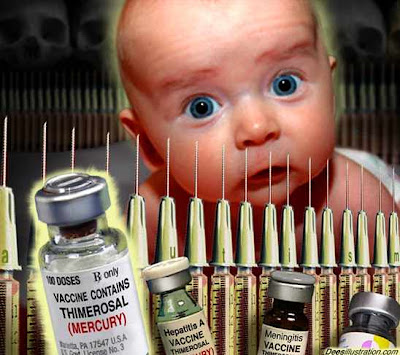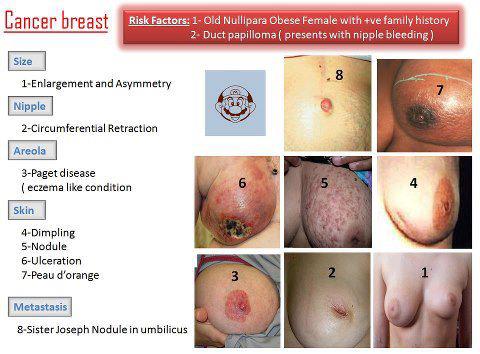Effect of Childhood Vaccines, Immune System
Certain vaccines may not work as well in children who have been exposed to high levels of perfluorinated compounds (PFCs), a family of chemicals used to make everything from microwave popcorn bags and pizza boxes to carpets and nonstick cookware, new research suggests.
In a study published this week in the Journal of the American Medical Association, researchers found that the higher the level of PFCs in a child's blood, the fewer antibodies the child produced after receiving vaccines for diphtheria and tetanus. In addition, kids with higher PFC exposure were more likely than their peers to have antibody levels too low to provide protection against those infectious diseases.
"The immune system is more sluggish when these kids are vaccinated," says lead author Philippe Grandjean, MD, an adjunct professor of environmental health at the Harvard School of Public Health, in Boston. "It doesn't respond as well…and produces less antibodies."
The number of antibodies generated by a vaccine is an indication of overall immune system function, so the findings suggest that PFCs may have negative effects on the immune system that go beyond these two vaccines, the researchers say.
Although experts haven't identified all the ways that PFCs enter the body, contaminated food and drinking water and consumer products containing the chemical are believed to be the main sources of PFC exposure.
Research in animals has already linked PFC exposure to changes in immune function. To determine whether the chemicals might affect the human immune system as well, Grandjean and his team took blood samples from 587 pregnant women between 1999 and 2001 and tested the samples for five common PFCs. Then, when the women's offspring were 5 years old, they repeated the process using blood samples from the kids.
The researchers also measured levels of diphtheria and tetanus antibodies in the children's blood at two time points: at age 5, after the kids had received three doses of the diphtheria and tetanus vaccine; and at age 7, two years after they'd received a booster shot.
Higher prenatal levels of two PFCs were associated with having fewer antibodies at age 5. Likewise, kids whose blood revealed higher PFC exposure at age 5 had fewer antibodies at age 7. A 5-year-old whose PFC exposure was double that of another 5-year-old's could be expected to have roughly half as many antibodies at age 7, the study estimates.
The findings raise the possibility that health officials are overestimating the protection provided by childhood vaccines, Grandjean says. If the percentage of vaccinated children "includes kids who are exposed to PFCs and therefore not responding to the vaccine," he says, the likelihood of an epidemic may be higher than it would appear from vaccination rates.
In a study published this week in the Journal of the American Medical Association, researchers found that the higher the level of PFCs in a child's blood, the fewer antibodies the child produced after receiving vaccines for diphtheria and tetanus. In addition, kids with higher PFC exposure were more likely than their peers to have antibody levels too low to provide protection against those infectious diseases.
"The immune system is more sluggish when these kids are vaccinated," says lead author Philippe Grandjean, MD, an adjunct professor of environmental health at the Harvard School of Public Health, in Boston. "It doesn't respond as well…and produces less antibodies."
The number of antibodies generated by a vaccine is an indication of overall immune system function, so the findings suggest that PFCs may have negative effects on the immune system that go beyond these two vaccines, the researchers say.
Although experts haven't identified all the ways that PFCs enter the body, contaminated food and drinking water and consumer products containing the chemical are believed to be the main sources of PFC exposure.
Research in animals has already linked PFC exposure to changes in immune function. To determine whether the chemicals might affect the human immune system as well, Grandjean and his team took blood samples from 587 pregnant women between 1999 and 2001 and tested the samples for five common PFCs. Then, when the women's offspring were 5 years old, they repeated the process using blood samples from the kids.
The researchers also measured levels of diphtheria and tetanus antibodies in the children's blood at two time points: at age 5, after the kids had received three doses of the diphtheria and tetanus vaccine; and at age 7, two years after they'd received a booster shot.
Higher prenatal levels of two PFCs were associated with having fewer antibodies at age 5. Likewise, kids whose blood revealed higher PFC exposure at age 5 had fewer antibodies at age 7. A 5-year-old whose PFC exposure was double that of another 5-year-old's could be expected to have roughly half as many antibodies at age 7, the study estimates.
The findings raise the possibility that health officials are overestimating the protection provided by childhood vaccines, Grandjean says. If the percentage of vaccinated children "includes kids who are exposed to PFCs and therefore not responding to the vaccine," he says, the likelihood of an epidemic may be higher than it would appear from vaccination rates.




children are over medicated...
ReplyDeleteI'm reading up on this, vaccines are essential, really, they're not as bad as everyone is making them out to be, maybe I'll do a post, I'm not sure if my blog fits the theme though.. Aah. Thanks for bringing this up!
ReplyDeletea very inetesting post, i always had a slight suspicion something like this could happen from over medication
ReplyDeleteVaccines are too useful to abandon them. Lower the use of PFCs not vaccination. We can always use more biodegradable materials.
ReplyDeleteI agree with R.gers...but if my kids were younger, I'd probably be doing a delayed vac schedule...but I would still have them immunized. Interesting info!
ReplyDeletei figure if everyone else gets them then who will i get sick from amirite?
ReplyDeletethis is such a hot topic of debate, & concern. since our bodies are all unique, it's difficult to determine what way is best, or most effective, for each individual to maintain good health.
ReplyDeleteI too agree with R.gers PFCs are the issue. Actually, most petrol based manufacturing will end soon enough anyhow....
ReplyDeletethere was something about children and medecin drugs yesterday at national TV...
ReplyDeletethere is something sure, i'll never give chimical medecin to my children (just if his life is in danger)
I didnt know this.
ReplyDeleteNice information.
ReplyDeleteWow this is kind of scary, if you don't have enough antibodies then well good luck not dying from some common disease
ReplyDeleteWhoa! What the hell? I didn't know about this.
ReplyDelete